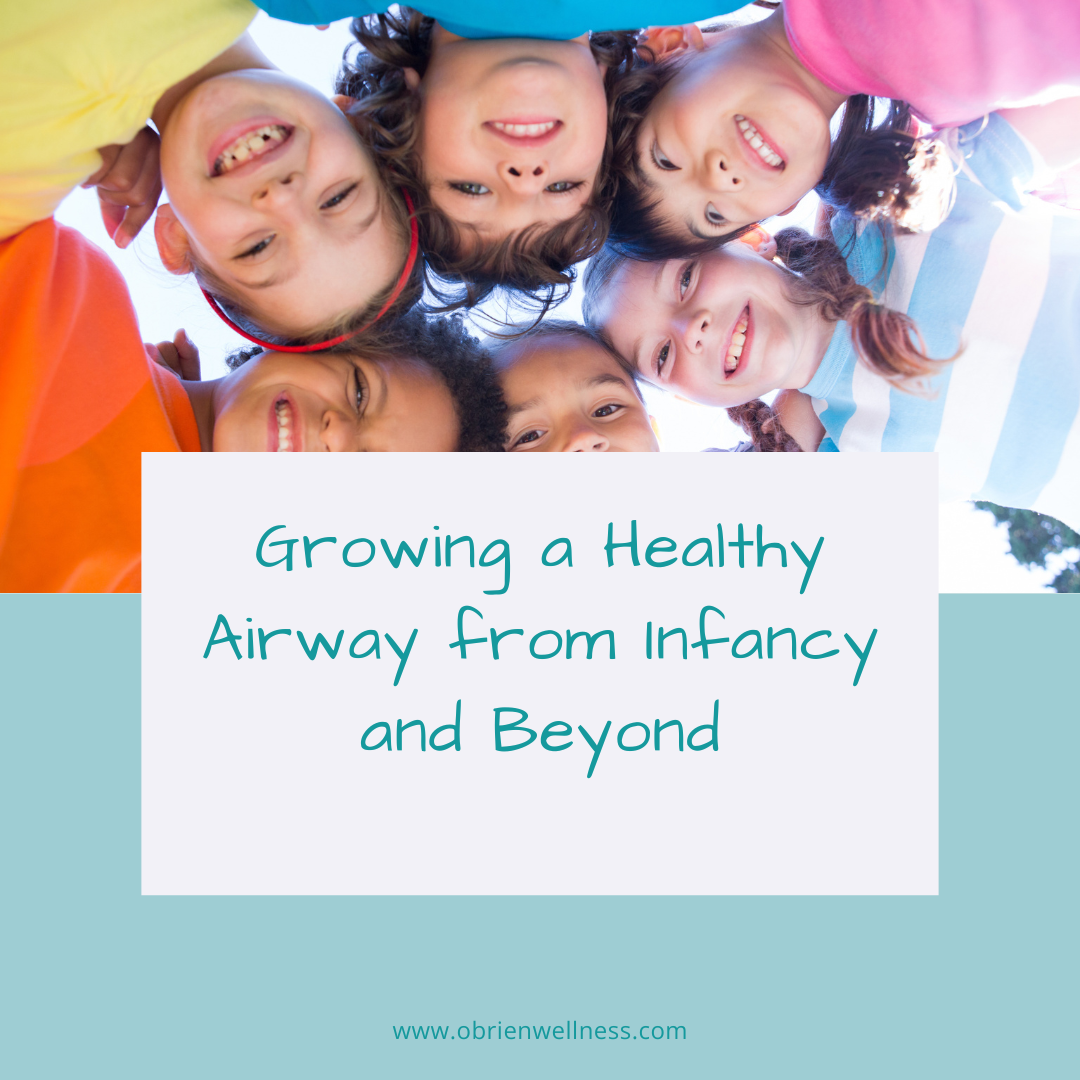
Growing a Healthy Airway from Infancy and Beyond
When we think about our baby’s health, we often focus on feeding, sleep, and developmental milestones. But one crucial — and often overlooked — area is airway development. A healthy airway sets the foundation for good sleep, speech, facial growth, and even emotional regulation. And it all begins in infancy.
As a pediatric occupational therapist specializing in oral function and craniosacral fascial therapy, I believe prevention is powerful. Supporting airway development early can help children breathe, sleep, and thrive. Here’s how we can nurture a healthy airway from the very beginning:
1. The Power of Proper Oral Rest Posture
Oral rest posture refers to the natural position of the tongue, lips, and jaw when a child is not eating or speaking. Ideally, the tongue should rest against the roof of the mouth, the lips should be gently closed, and breathing should occur through the nose.
This posture:
- Promotes proper jaw and facial development
- Supports optimal nasal breathing
- Helps shape the hard palate (which is also the floor of the nasal cavity)
When babies develop habits like mouth breathing, open-mouth posture, or low tongue posture due to congestion, tongue ties, or poor tone, it can negatively affect the airway’s growth and function. Addressing these concerns early makes a big difference.
2. Craniosacral Fascial Therapy (CFT): Supporting the Nervous System
CFT is a gentle, hands-on therapy that releases strain patterns in the fascia — the body’s connective tissue — and helps rebalance the nervous system. Birth can be a physically intense experience for babies, and lingering tension in the head, neck, or body can affect feeding, breathing, and sleep.
Incorporating CFT in infancy can:
- Improve body awareness and function
- Release oral tension that may affect latch or tongue mobility
- Support vagus nerve function for better digestion and calming
This foundational work helps babies feel more regulated and coordinated — crucial for feeding and airway health.
3. Feeding Skills: More Than Just Nutrition
Feeding is one of a baby’s first motor activities, and it plays a major role in shaping oral structures. Whether breastfeeding, bottle feeding, or both, efficient feeding helps develop strength and coordination in the mouth, jaw, and tongue.
Signs of feeding dysfunction — like clicking, poor weight gain, leaking milk, or prolonged feeds — may be early red flags for oral motor issues that could impact airway growth.
Working with a therapist who understands infant oral motor function and tethered oral tissues can help identify and address these issues early on.
4. The MyoMunchee: Tiny Tool, Big Impact
Around age 1 (once molars are in), introducing a chewing tool like the MyoMunchee can be incredibly beneficial. It’s a small oral device made of medical-grade silicone that encourages rhythmic chewing — a natural way to stimulate jaw growth and facial development.
Benefits of the MyoMunchee include:
- Strengthening orofacial muscles
- Encouraging lip seal and nasal breathing
- Promoting good oral posture and function
- Supporting proper swallowing patterns
Used as part of a structured program, the Munchee helps maintain the gains made through early therapy and promotes long-term airway health.
5. Movement, Play, and Whole-Body Health
Healthy airway development is also supported by whole-body movement and integration of primitive reflexes. Tummy time, crawling, and active play all contribute to postural strength, proper head and neck alignment, and breathing mechanics.
When retained reflexes or structural issues affect movement, these may show up as poor sleep, mouth breathing, behavioral challenges, or speech delays. Addressing these patterns early ensures the airway can grow without restriction.
Start Early, Breathe Easy
Supporting your child’s airway development doesn’t have to be complicated — but it does require intention. From proper tongue posture to therapeutic tools like the MyoMunchee, there’s so much we can do during the early years to foster a healthy foundation for life.
If you suspect your baby may be struggling with feeding, oral posture, or body tension, don’t wait. Reach out to a provider trained in airway-focused care. Together, we can help your child grow a mighty mouth — and a healthy airway to match.
Have questions about your infant or child, schedule a free consult today!
